What is Russia?
В previous work we stopped at the moment of the "vocation of the Vikings". How the subsequent events are considered in modern scientific literature - this will be discussed in this article.
Vocation
In the conditions when the East Slavic tribes, standing at the tribal stage of development, mastered the forest zone of Eastern Europe, an event occurred that stimulated the emergence of early state institutions.
Written story Eastern Slavs begins with events in which the Slavs are involved in a clash with neighboring ethnic groups. The northerners, Radimichi and Vyatichi, who were on the forest-steppe border, were taxed by the nomadic formation of the Khazars. The question of the tribute of the Polyans to the Khazars remains open.
With this key term of early history - "tribute", we will come across more than once in the medieval history of the Slavs, so it requires clarification.
Tribute - payment to the winners from the losers, "Tormented" in the Old Russian language. What makes a tribute akin to an indemnity, but it is paid in a lump sum, and the tribute is paid constantly. It is not a tax, since a tax is a mechanism for payments within society, and tribute always goes outside. Where there is tribute, there is external interaction.
Tribute is a voluntary or forced payment in conditions where there is a loser and a winner, a measure of ransom and payment for security. It is a primitive form of exploitation that does not affect the structure of a tributary society. From the point of view of the ideas of that era, the phenomenon is humiliating and shameful for those who submitted - tributaries.
At the same time in the north the Vikings began to take tribute from the Slavs and their neighbors, the Finnish tribes. Slavic Slovenia, Krivichi and Finnish Merya, Chud and the whole united and drove out the enemies, but after that they began to fight among themselves: a clan rose up, as a result of which the "act of calling the Varangians" takes place.
The vocation is a history known among other peoples. The Britons, the Celtic inhabitants of Britain, invited the Saxons to England to defend themselves against invasions from the north:
But as a result, the Saxons, and after them and other Germanic tribes, having discovered the weakness of the Britons, captured England.
Rurik and his brothers came with their kin, with all of Russia to the "rich and abundant" country. Let us emphasize, with the family, not with the retinue, not with the people, but with the family:
Al-Balkhi added:
Who is this Russia, about which there are still disputes?
This question "torments" Russian historians, and not only them, for three hundred years already. From a scientific point of view, the question "where did Russia come from" is, if very much simplified, the question "who and how created the Russian primordial state?" I repeat, if I simplify it a lot, but more on that later.
Since the process of the emergence of a state is a long and time-consuming process, and it cannot be reduced to any one action. Moreover, the state arises only in the presence of classes, and in the conditions of a pre-class society, to which the tribal society of the Eastern Slavs undoubtedly belonged, the state could not arise.
Nevertheless, we have two key theories: Norman and Anti-Norman. The followers of the first believe that the Scandinavians laid the foundation for the state.
Supporters of the second oppose them.
Some of them are firmly convinced that Russia and the Varangians are not Scandinavians. Others admit the presence of a Scandinavian element, but, following the Marxist idea of the emergence of the state, they consider this not so essential, proceeding from the fact that the state arises exclusively in the depths of society and cannot simply be brought in from the outside.
There are other theories where Russia was or is considered Khazars, Celts, Geruls, but they are more from the realm of fantasy than scientific analysis. Let us dwell on some of the key points about "Rus".
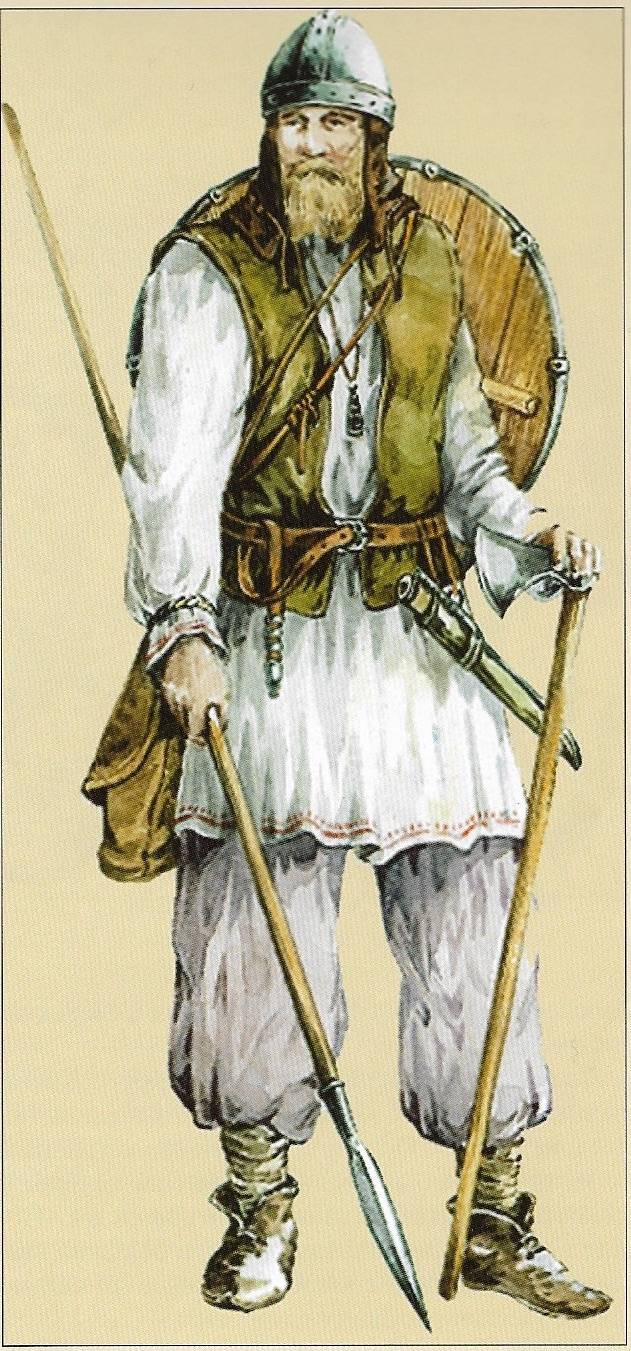
Modern reconstruction of the rus
Dew and / or Rus?
Dew. Let's say right away: no people grew up in the Russian chronicle, only Russia is always present in the chronicle. Accordingly, there have never been "epic" dews or dews:
Have fun, brave Ross!
Ros is a book construction of Byzantine writers. The legend of the northern people Rosh - grew up under the leadership of Gog and Magog was popular in Byzantium.
And it is no coincidence that the Byzantine scribes, who loved historical pompous epithets and historical comparisons, called the northern barbarians, “Scythian tribe of unbridled cruelty”, Who attacked Constantinople and have a similar name, the people of Ros. Hence the Emperor Constantine Porphyrogenitus called the country of the "Ross" - Russia. In Russia, for the first time, the term Russia (with one s) began to be used at the end of the XNUMXth century, probably with the arrival of the Byzantine princess Sophia Palaeologus in Russia, but it began to be actively used and used in the name of our country only from the end of the XNUMXth century. We see that this is an absolutely bookish construction, which initially had nothing to do with historical events.
Russia. There are many opinions and theories about the name of Rus, its origin and habitat. Let's look at the main ones.
The South Russian hypothesis deduces Russia from the root of "dew". For example, the Ros River, the right tributary of the Dnieper, Roksolany, an ethnos that lived in the steppes of the Black Sea region, etc. It suggests that the Rus-dew originally lived in the Dnieper region.
The second assumes that Russia comes from a common Slavic root: * rud - / * rus> * rud-s- "fair-haired"; ru- / ry- "swim", "flow".
The third - "Gothic", derives Russia from the Gothic word "glory".
The fourth, West Slavic, connects the origin of Russia with the West Slavic tribe Ruge, Fr. Rugen, Ruthenia.
The fifth, perhaps the dominant theory today, says that the term was borrowed by the Slavs from the Finns, who still call their Scandinavian neighbors: ruotsi, comes from the Old Icelandic “rower, rower, paddle”: ross (rower) → ruossi (Swede) → rus.
Each of the proposed theories has its own pros and cons, and does not completely solve the problem of the emergence of the term "rus".
Most historians, Normanists or neo-Normanists, and many supporters of the "formation theory", believe that the Rus were Scandinavians. There are many arguments in favor of this version, they are not indisputable, but I will cite the key ones.
Firstly, these are onomastic data, from the above name "Rus", which is derived from the name of the rowers, to the names of the first princes, governors, guests, merchants and ambassadors. Most of them had Scandinavian or Germanic names (Rurik, Igor, Oleg, Olga, Rogvolod, Rogneda, Malfred, Askold, Dir, Sveneld, Akun, Farlaf, Ruald, Bern, etc.).
Rurik is associated with Rorik of Jutland. Close to them are the "luxurious" names of the Dnieper rapids described by Konstantin Porphyrogenitus.
Secondly, Russia introduced, according to the supporters of this version, many pre-state institutions or their elements: polyudye, an analogue of the Swedish "yord" or Norwegian "Weizla", a squad, a feast, a court of 12 citizens, a penalty in 3 monetary units. Legends such as the "song" about the Prophetic Oleg are analogous to the story of the death of Orvarr-Odin.
Thirdly, the presence of a Scandinavian funeral rite in Eastern Europe: burial in a boat, ashes in an urn, under a mound surrounded by a ring-shaped stone pavement, in chamber burials (in log cabins).
Fourthly, the Eastern Slavs did not have swords, they were brought to these territories by the Scandinavians who have long used this type weapons.
Their opponents doubt this version. They believe that, firstly, the Varangians-newcomers from across the sea in the XNUMXth century were the West Slavic tribe of the Wagrs (wagiri), known for their militancy as sailors fighting the German expansion.
Adam Bremensky, describing the large sea city of the Slavs Yumna, the center of trade in the Baltic, wrote that from the capital of the wagrs, Oldenburg - Stargorod, one can get to Yumna (Volin), and from Yumna it is fourteen days by sea to go to Novgorod.
That is, the path to Eastern Europe from the land of the Western Slavs was fairly well known.
In the Frankish annals there is information that the Danish king Goldfred ravaged the Slavic city of Rerik on the border with Denmark. Back in the fifteenth century. Austrian ambassador Herberstein suggested that it was from the coast of the Baltic Sea "from Wagria", where the Vagry, akin to the Eastern Slavs, lived, that the leaders and squads were invited to the Eastern Slavs.
Her opponents believe that there is no philological connection between the Vagrs and the Varangians.
Secondly, the visiting Scandinavians very quickly forgot their language. He practically did not leave a trace at all in the Russian language (30 words), unlike, for example, England, where there was a real conquest of British lands by the Scandinavians.
Thirdly, on archaeological sites that are associated with the Normans, Scandinavian finds make up no more than 30%, and if we exclude controversial or polyethnic finds, then there are less than 15% of them.
Fourth, even if we assume that the Scandinavians were able to quickly forget their language and stopped using their clothes and objects of material culture, then how could they easily abandon their religion and exchange Odin for Perun? Russia swears by Perun, not Odin or Thor, Russia makes sacrifices at the Oak, the tree of Perun, and not Odin.
At the same time, Perun is the squad leader of the Western Slavs, who were warlike sea robbers in the western part of the Baltic. Back in the eighteenth century. among the Slavs who lived on the Elbe, Thursday was "Perun dan", as Thursday is the day of Thor. Perun came to Kiev from the north.
And, finally, the Rurikovichs never said that they descended from the Scandinavians, and the Icelandic Sagas, describing all the genealogies of kings, nobility and free bonds, telling about the Russian princes Vladimir and Yaroslav, never derived their ancestry from Scandinavia. But everything is known in great detail about the relationship of the Scandinavian dynasties with the English kings.
Such are the main opinions on the issue of the term rus-ros.
What happened?
In 862, Rurik and his brothers, according to a later legend, occupied the tribal centers of the north-west of Eastern Europe.
Rurik with Sineus and Truvor, and with the Russian clan, began to rule where they were invited by a number (agreement). So in the north, a super-union is formed - a stable scientific term denoting a potestary, pre-state association of the tribal system period. The dominant positions in it, contrary to a number (agreement), are captured by Russia or the Russian clan. At the same time, Askold and Dir (or only Askold) rule in Kiev. According to one version, the leaders of a non-princely family from Russia, who left Rurik and seized the tribal center of the Polyans - Kiev. According to another version, Askold was a local Kiev leader.
Further: “dews” (the term of the Byzantine author of Theophan's Successor) attacked Constantinople and the Princes' Islands on two hundred ships. The metropolis had no serious defense, but the "godless dew" suddenly receded under the influence of a storm caused by the robe of the Mother of God from the Church of the Holy Mother of God of Blachernae. In 874, the emperor of the Romans, Michael III, concluded a treaty with these dews, and the first baptism of Rus took place. This fact was not reflected in the Russian chronicles, and the baptism of Rus under Vladimir in the XNUMXth century. was not reflected in Byzantine sources.
At the same time, under the leadership of Prince Rurik, according to a number of researchers, a control system was created in a super-union or a union of northern tribes, the center of which was Ladoga.
For the first time, military power becomes public, and in Eastern Europe a union of tribes is created - as the highest form of unification under the tribal system, sealed by this public power standing above the tribal elite.
After the death of Rurik, the union was headed by Oleg - according to one chronicle version, the governor of Rurik during the childhood of his son Igor, according to another version - the prince.
Some researchers, for various reasons, question the existence of Rurik, or his existence exactly in this form, however, like Oleg, which is not of great importance for our presentation.
At the end of the IX century. Oleg, at the head of the Russian clan and at the head of the militia of the northern union of tribes, moves south, subjugating the East Slavic tribes on the way to Kiev. In Kiev, he cunningly lures Askold and Dir out. In this episode, one can clearly see how sporadic the movement along the path from the "Varangians to the Greeks" and the trade travels themselves were.
The goal of Oleg, a kind of Russian, the militia of the northern tribes and the Varangians who joined them was a campaign for tribute to the south, and not seizing control over waterways - because of their low significance for trade. Which, under the conditions of the tribal system, was practically not implemented and was of an episodic nature.
The presence of a large number of finds of coins should not mislead us on this score: the coins were neither barter units, nor the equivalent of exchange, but just objects of female jewelry or sacrifices to the gods. An analysis of the placement of treasures shows that there are very few of them on the territory of the Eastern Slavs proper.
Therefore, having learned about the arrival of the "Ugric" guests, the Kiev rulers themselves came to inquire about the merchant ship, and here Oleg showed them Rurik's young son Igor with the accusation that they had no right to rule here, Askold and Dir were killed.
And Prince Oleg, in the center of the Polyana community, said about Kiev:
Oleg's words about “mati gradom Ruskim”It should be understood that the prince and his Russian clan, which means that the whole of Russia passed from Novgorod or Ladoga to Kiev, and the leader of Russia established a new hierarchy, where Kiev becomes the center of Russia or the Russian clan and all the lands and tributaries belonging to them.
And the northern tribes and mercenaries of the Varangians, having received tribute from the captured Kiev, returned to themselves. Russia made the lands of the meadows, parts of the lands of the northerners and the Radimichs, and, possibly, part of the Vyatichi as its "domain". These are the future principalities with centers in Kiev, Chernigov and Pereyaslavl.
Under the new conditions, the Russian clan turns from a military clan "corporation" into a supra-tribal system of government, which gradually included the clan nobility of the tribes, and simply strong warriors-heroes.
As the Arab author Masoudi wrote:
Russia from Kiev conquers new tributaries:
The Rus conquered the Slavic tribes of the Drevlyans, Northerners and Radimichs, the former tributaries of the Khazars. Oleg defeats the tribal unions of the southern tribes of the Tivertsy and Ulitsy
No one wanted to fall into tributary dependence and pay tribute without a fight.
How the war for tribute took place can be seen in the chronicle legend about Olga's revenge on the Drevlyans: this was a real war of extermination, primarily of the tribal nobility.
So on the border of the XNUMXth and XNUMXth centuries. Russia united vast territories under its rule: most of the East Slavic and Finno-Ugric tribes. This union was not an early state in the full sense of the word, it was a shaky "federation".
For its designation, the term super-union of tribes is also used, which I have mentioned more than once, a structure corresponding to the tribal stage of development. At the head of the "super-union" was Russia or the Russian clan, which received tribute from the subordinate tribes, controlling exclusively the processes associated with them, and attracted tribal militias to participate in large-scale campaigns for the same tributes.
Because without this forcible unification of these lands by the Russian clan, further progress in social relations associated with the destruction of the isolated, conservative clan system in the boundless expanses of Eastern Europe would be impossible.
Bibliography:
Adam of Bremen, Helmold from Bosau, Arnold of Lubeck Slavonic chronicles. M., 2011.
Widukind of Corveyskiy Deed of the Saxons. Introductory article, translation and comments by G.E.M. Sanchuk, 1975.
News about the Khazars, Burtases, Bulgarians, Magyars, Slavs and Russians. Translation and commentary by Khvolson V.A.SPb., 1869.
Konstantin Porphyrogenitus. On the management of the empire. M., 1991.
Successor of Theophanes. Biography of the Byzantine kings. SPb., 2009.
Priselkov M. D. History of Russian chronicle writing of the 1996th-XNUMXth centuries. SPb., XNUMX.
Vashchenko E. D. "Khazar problem" in the national historiography of the XVIII-XX centuries. SPb., 2006.
Dvornichenko A. Yu. Mirror and chimeras. About the origin of the ancient Russian state. SPb., 2012.
Klein L. S. Dispute about the Varangians. S-Pb., 2009.
Melnikova E.A. Ancient Russia and Scandinavia. Selected Works. M., 2011.
Nasonov A. N. "Russian land" and the formation of the territory of the ancient Russian state. M., 1951.
Priselkov M. D. History of Russian chronicle writing of the 1996th-XNUMXth centuries. SPb., XNUMX.
Stang H. The name of Russia (Herulian version). S-Pb., 2000.
Fomin V.V. Varangians and Varangian Rus. To the results of the discussion on the Varangian issue. M., 2005.
Froyanov I. Ya.Kievan Rus. L., 1990.
Froyanov I. Ya. Slavery and tributary. SPb. 1996.
Продолжение следует ...
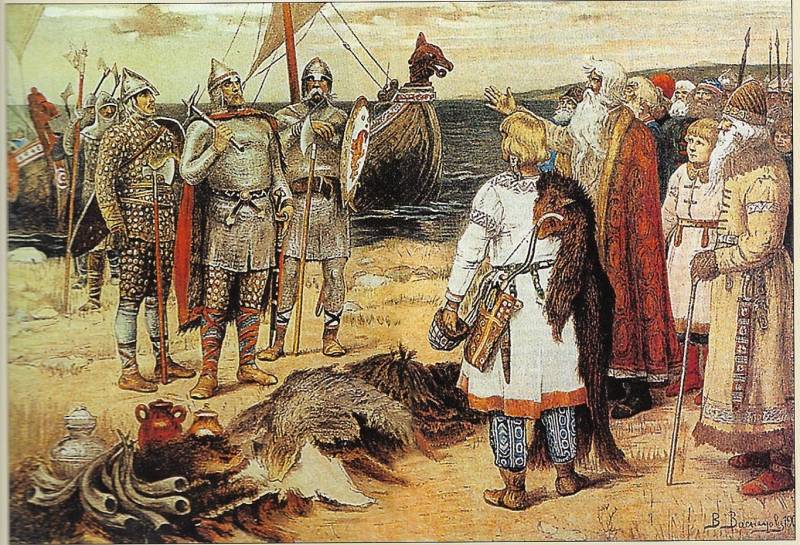
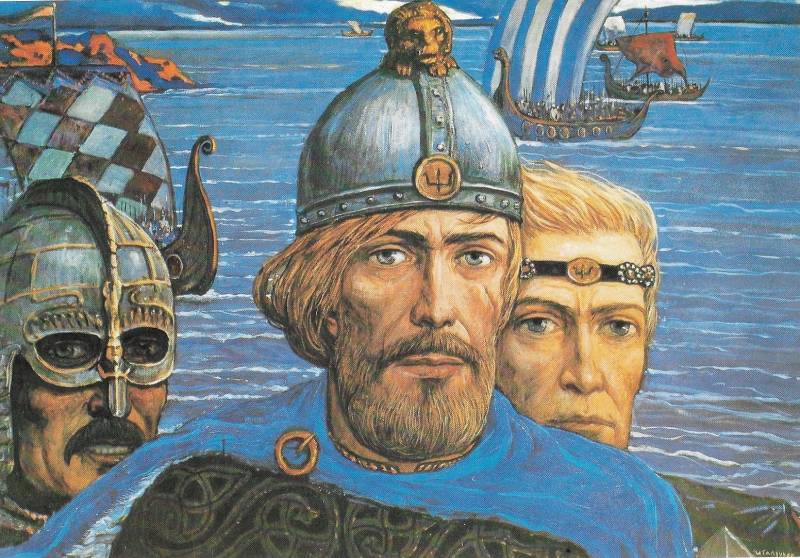
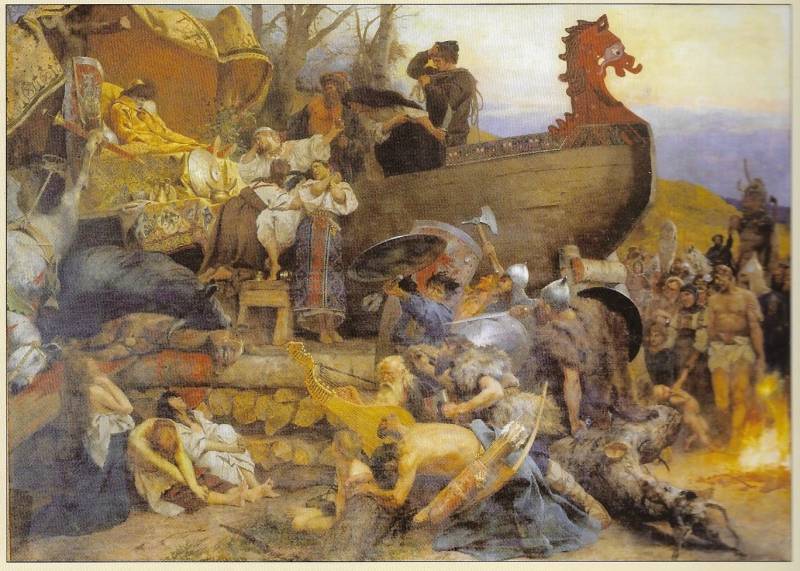
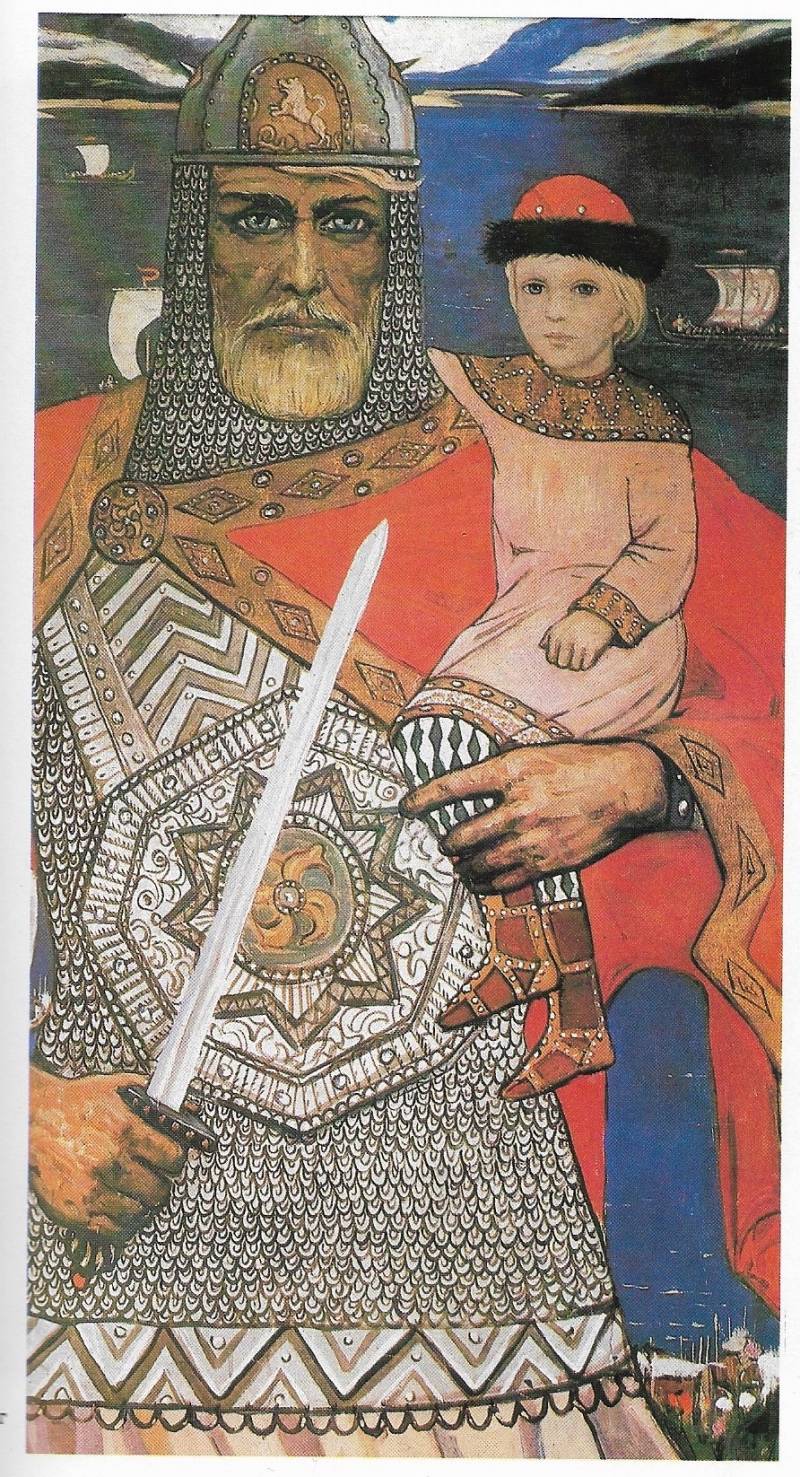
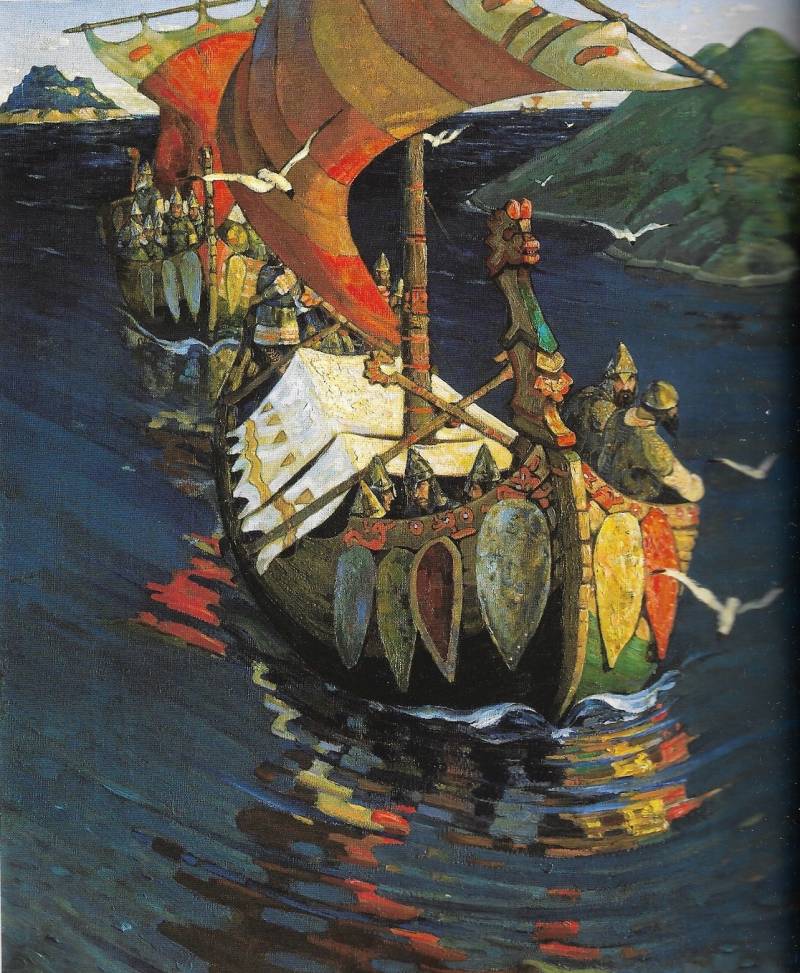
Information